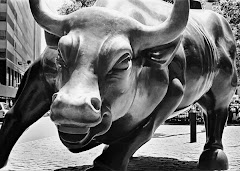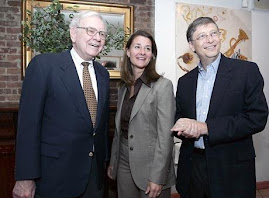I almost started a business with a brother in Vietnam. I almost pump money into a Vietnam fund. I almost married a Vietnam girl..... ok I'm just joking. But what happen to Vietnam now? Its stock and economy is in trouble.
Two years ago, many people were excited with Vietnam. Its huge and young population, untapped market, political stability, cultured locals, economic revamp all pointing to one conclusion..... 2nd China!!!
And seriously two years ago, there is no reason not to believe so. All t hese were supported with economic data, demographic data and many analysts' reports. But things are all different now. Vietnamese inflation is a whopping 25%!!! Here in Singapore, we already felt the pinch of 5% inflation. Yesterday I bypassed a shop selling BBQ pork and rice dumpling. I enquired on the price and the lady boss replied S$3.50 per dumpling. I was shock and apparently she noticed my expression. On a normal day, a dumpling cost around S$1.50. So I smile at her and turnaround to leave the shop. Then she explains (while I was walking away) that "everything is expensive now due to rising prices". I almost wanted to turn back to correct her motherhood statement. Inflation is 5%, not 100%. The 100% infl
hese were supported with economic data, demographic data and many analysts' reports. But things are all different now. Vietnamese inflation is a whopping 25%!!! Here in Singapore, we already felt the pinch of 5% inflation. Yesterday I bypassed a shop selling BBQ pork and rice dumpling. I enquired on the price and the lady boss replied S$3.50 per dumpling. I was shock and apparently she noticed my expression. On a normal day, a dumpling cost around S$1.50. So I smile at her and turnaround to leave the shop. Then she explains (while I was walking away) that "everything is expensive now due to rising prices". I almost wanted to turn back to correct her motherhood statement. Inflation is 5%, not 100%. The 100% infl ated price of her dumpling was seasonal. Don't cover up everything by blaming it on the inflation, “I not stupid too”.
ated price of her dumpling was seasonal. Don't cover up everything by blaming it on the inflation, “I not stupid too”.
Anyway, a year ago, Lion Capital launched the first Vietnam Fund available to all investors. Everyone was excited and I almost bought it. I didn't merely because most of my spare cash was in the stock market then. I even recommended the fund to my friends. Luckily, they didn't invest in it. Now the fund's price crashed like can tin.
The following is a report in Business Time on Vietnam's economy.
Two years ago, many people were excited with Vietnam. Its huge and young population, untapped market, political stability, cultured locals, economic revamp all pointing to one conclusion..... 2nd China!!!
And seriously two years ago, there is no reason not to believe so. All t
 hese were supported with economic data, demographic data and many analysts' reports. But things are all different now. Vietnamese inflation is a whopping 25%!!! Here in Singapore, we already felt the pinch of 5% inflation. Yesterday I bypassed a shop selling BBQ pork and rice dumpling. I enquired on the price and the lady boss replied S$3.50 per dumpling. I was shock and apparently she noticed my expression. On a normal day, a dumpling cost around S$1.50. So I smile at her and turnaround to leave the shop. Then she explains (while I was walking away) that "everything is expensive now due to rising prices". I almost wanted to turn back to correct her motherhood statement. Inflation is 5%, not 100%. The 100% infl
hese were supported with economic data, demographic data and many analysts' reports. But things are all different now. Vietnamese inflation is a whopping 25%!!! Here in Singapore, we already felt the pinch of 5% inflation. Yesterday I bypassed a shop selling BBQ pork and rice dumpling. I enquired on the price and the lady boss replied S$3.50 per dumpling. I was shock and apparently she noticed my expression. On a normal day, a dumpling cost around S$1.50. So I smile at her and turnaround to leave the shop. Then she explains (while I was walking away) that "everything is expensive now due to rising prices". I almost wanted to turn back to correct her motherhood statement. Inflation is 5%, not 100%. The 100% infl ated price of her dumpling was seasonal. Don't cover up everything by blaming it on the inflation, “I not stupid too”.
ated price of her dumpling was seasonal. Don't cover up everything by blaming it on the inflation, “I not stupid too”.Anyway, a year ago, Lion Capital launched the first Vietnam Fund available to all investors. Everyone was excited and I almost bought it. I didn't merely because most of my spare cash was in the stock market then. I even recommended the fund to my friends. Luckily, they didn't invest in it. Now the fund's price crashed like can tin.
The following is a report in Business Time on Vietnam's economy.
===========================
Business Times - 09 Jun 2008
Vietnam faces boom-and-bust cycle: analysts
(HANOI) Vietnam's economy, until recently a darling of foreign investors, has overheated and may be sliding into a boom-and-bust cycle that could require IMF-style assistance, analysts say.
The economy widely hailed last year as Asia's next tiger has been battered by double-digit inflation, a ballooning trade gap, a tanked stock market and worries about the currency and banking sector.
Credit rating agencies Standard & Poor's, Fitch and Moody's and several investment banks have revised downward their outlooks for Vietnam at a time when the spectre of a US recession could spell global trouble.
Aseambankers Research said that 'the worst-case scenario would be for Vietnam to suffer massive capital flight, triggering a balance of payment crisis and forcing the country to go to the International Monetary Fund (IMF) for help'. Analyst Adam Le Mesurier wrote for consultancy DSG Asia that 'an 'IMF programme' style policy response will be needed within six months', including monetary and fiscal tightening and a dong currency devaluation. Many investors and donors in Vietnam remain upbeat about the market of 86 million, pointing to strong exports - including that of food and oil - investment inflows, growing tourism, and the potential of its young workforce.
'It's too easy to get excited and claim that Vietnam has gone from poster child to problem child,' said EU chief country representative Sean Doyle. 'But I'm not sure it's very wise and very balanced . . . Vietnam, if it can keep steady, stick with the right policies, will be attractive.'
Nonetheless, the turnaround in investor perception has been stunning. Communist Vietnam's 2007 entry into the World Trade Organization (WTO) fuelled enthusiasm for the low-wage 'mini-China', bringing an influx of foreign cash.
Domestic investors gambled on a sky-rocketing stock exchange, the government went on a spending spree, and banks lent freely, fuelling rapid credit growth.
The wheels started to come off about half a year ago, when inflation hit double digits as the economy tried to digest US$6 billion in foreign direct investment (FDI) disbursed last year, or 8.4 per cent of gross domestic product (GDP).
Since the start of the year, prices have galloped - driven by global food and energy costs - to 25 per cent year-on-year inflation in May. Wage demands sparked 300 labour strikes in the first quarter alone.
'The wage-price spiral appears to be beginning. If it becomes embedded, it could make matters much worse,' said an HSBC report that predicted a rise to 30 per cent inflation amid hoarding of commodities.
Another alarm bell sounded when surging imports drove the trade deficit to US$14.4 billion in May, compared to US$12 billion for all of 2007.
The stock market has tumbled amid tighter credit and falling investor confidence, turning from the world's best to worst performing bourse. Last week, it crashed below 400 points, from its high of over 1,100 in March 2007.
Many investors have bought gold or offloaded their value-losing dong for greenbacks, briefly sending the black market rate in Vietnam to 18,500 to the US dollar last week, against the official rate of around 16,000.
Business Times - 09 Jun 2008
Vietnam faces boom-and-bust cycle: analysts
(HANOI) Vietnam's economy, until recently a darling of foreign investors, has overheated and may be sliding into a boom-and-bust cycle that could require IMF-style assistance, analysts say.
The economy widely hailed last year as Asia's next tiger has been battered by double-digit inflation, a ballooning trade gap, a tanked stock market and worries about the currency and banking sector.
Credit rating agencies Standard & Poor's, Fitch and Moody's and several investment banks have revised downward their outlooks for Vietnam at a time when the spectre of a US recession could spell global trouble.
Aseambankers Research said that 'the worst-case scenario would be for Vietnam to suffer massive capital flight, triggering a balance of payment crisis and forcing the country to go to the International Monetary Fund (IMF) for help'. Analyst Adam Le Mesurier wrote for consultancy DSG Asia that 'an 'IMF programme' style policy response will be needed within six months', including monetary and fiscal tightening and a dong currency devaluation. Many investors and donors in Vietnam remain upbeat about the market of 86 million, pointing to strong exports - including that of food and oil - investment inflows, growing tourism, and the potential of its young workforce.
'It's too easy to get excited and claim that Vietnam has gone from poster child to problem child,' said EU chief country representative Sean Doyle. 'But I'm not sure it's very wise and very balanced . . . Vietnam, if it can keep steady, stick with the right policies, will be attractive.'
Nonetheless, the turnaround in investor perception has been stunning. Communist Vietnam's 2007 entry into the World Trade Organization (WTO) fuelled enthusiasm for the low-wage 'mini-China', bringing an influx of foreign cash.
Domestic investors gambled on a sky-rocketing stock exchange, the government went on a spending spree, and banks lent freely, fuelling rapid credit growth.
The wheels started to come off about half a year ago, when inflation hit double digits as the economy tried to digest US$6 billion in foreign direct investment (FDI) disbursed last year, or 8.4 per cent of gross domestic product (GDP).
Since the start of the year, prices have galloped - driven by global food and energy costs - to 25 per cent year-on-year inflation in May. Wage demands sparked 300 labour strikes in the first quarter alone.
'The wage-price spiral appears to be beginning. If it becomes embedded, it could make matters much worse,' said an HSBC report that predicted a rise to 30 per cent inflation amid hoarding of commodities.
Another alarm bell sounded when surging imports drove the trade deficit to US$14.4 billion in May, compared to US$12 billion for all of 2007.
The stock market has tumbled amid tighter credit and falling investor confidence, turning from the world's best to worst performing bourse. Last week, it crashed below 400 points, from its high of over 1,100 in March 2007.
Many investors have bought gold or offloaded their value-losing dong for greenbacks, briefly sending the black market rate in Vietnam to 18,500 to the US dollar last week, against the official rate of around 16,000.



